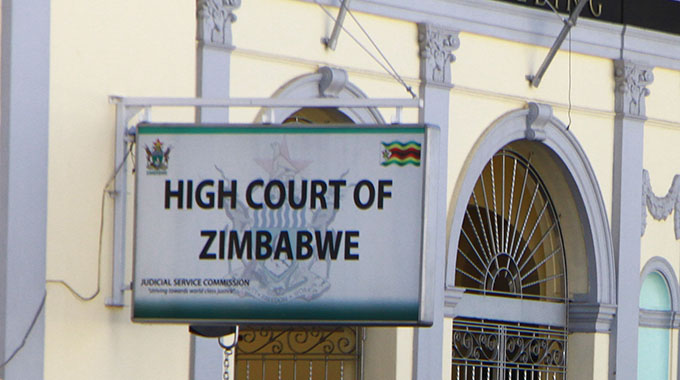21st meeting decisions matrix

18th June, 2019
a) Human Capital Development, Skills Audit and Employment Creation: 2019–2023
Cabinet considered a submission by the Minister of Higher and Tertiary Education, Science and Technology Development, Chairman of the Cabinet Committee on Human Capital Development, Skills Audit and Employment Creation on key priority programmes to be undertaken during the period 2019–2030. The programmes are derived from the Transitional Stabilisation Programme (TSP) and targeted towards the achievement of the goals of Vision 2030 as highlighted below:
1. Zimbabwe National Qualifications Framework (ZNQF)
To develop standardised qualifications through the establishment of minimum bodies of knowledge and skills, thus enhancing transparency to institutions, learners and employers.
2. Reconfiguration of Higher and Tertiary Education (HTE) 3.0 to HTE 5.0
To reconfigure Higher and Tertiary Education in Zimbabwe to focus on Innovation and Industrialisation (HTE 5.0) in addition to Teaching, Research and Community Service (HTE 3.0).
3. Education and Training Infrastructure Development
To develop state of the art infrastructure for Schools, Vocational Training Centres, Higher and Tertiary Education institutions through the engagement of investors.
4. Increasing Access to Education, Science, Technology, Engineering and Mathematics
To increase the number of youths who will graduate as artisans, technicians, teachers and other professionals with technical, vocational and entrepreneurial skills for decent work and sustainable self-employment.
5. Internationalisation of Education and Training Institutions in Zimbabwe
To attract foreign students to study in Zimbabwe.
6. Information Communication Technology Research and Development
To solve the perennial and recurrent shortage of ICT skilled human capital and provide home-grown ICT solutions.
7. Culture, Heritage and Social Skills Development
To develop skills in the area of culture and heritage in order to promote national peace and social cohesion.
8. Government-Industry-Training Institutions linkages
To link Government departments and Industry to institutions of higher learning in a targeted manner.
9. Sports and Recreation Industries Skills Development
To identify and develop talent in sport and to encourage entrepreneurship in the sector.
10. Sector Specific Critical Skills Audits
To continuously assess skills levels whilst taking into consideration technology changes.
11. Strategic Institutions Promotion
To support emerging Centres of Excellence.
12. Employment Creation
To promote, coordinate and monitor innovative financing schemes for micro, small and medium enterprises and the formation of companies as opposed to cooperatives and also introduce a Graduate Employment Entrepreneurship Programme.
13. Culture and Creative Industries Skills Development
To encourage entrepreneurship in culture and creative arts.
b) Updates on Transport and Infrastructural Development Projects
Cabinet received progress updates from the Minister of Transport and Infrastructural Development on the implementation of the following projects:
i) Beitbridge Border Modernisation Project
The project involves, among other things, the upgrading of the border post through the construction of new terminal buildings, commercial facilities, construction of a fire station, upgrading of water and sewer reticulation systems and construction of staff housing for border agencies. The Zim-Borders, the contractor for the project, has already started construction of the maintenance building and civil works.
ii) Update on Ponta Techobanine Heavy Haul Rail and Deep Sea Port Project
This Project involves the development of a new inter-regional heavy haul railway system linking the coal fields of Zimbabwe and Botswana, with contractual access to a modern deep water sea port in Mozambique. The project was mooted upon realization that the existing railway line may not adequately accommodate the transportation of Zimbabwe and Botswana’s coal exports and fuel imports to and from the sea ports in Mozambique. The project is to be sponsored by the Governments of the two countries, while private sector participation will be encouraged. A feasibility study on the project is scheduled to start before the end of this year.
iii) The Kazungula Bridge and the One Stop Border Post Project
It should be recalled that Zimbabwe became part of the Kazungula Bridge and One Stop Border Post Project at the Kasane Summit in 2018. With respect to Zimbabwe, the project entails construction of a new Tri-National One Stop Border Post with an entry terminal and a road diversion access, in order to facilitate entry and exist for traffic from Botswana and Zambia. Cabinet approved that a consultant be urgently sought to carry out the feasibility study, designs and associated modifications.
c) 2019-2030 Priority Programmes for the Cabinet Committee on Innovation, Science, Technology Development and Application
Cabinet considered a submission by the Minister of Higher and Tertiary Education, Science and Technology Development Chairman of the Cabinet Committee on Innovation, Science, Technology Development and Application on key priority programmes to be undertaken during the period from 2019 to 2030. The Programmes are derived from the Transitional Stabilisation Programme (TSP) and are targeted towards the achievement of the goals of Vision 2030 as highlighted below:
1) The Energy and Mineral Research Programmes, which focuses on the development of sustainable renewable energy sources, research and development of alternative liquid fuels from the abundant local coal resources;
2) The Biotechnology and Genomic Technology Programme, which will ensure provision of safe and effective treatment of diseases, screening of new-born babies for inherited diseases, forensic DNA for crime investigation, agriculture, and justice and national security;
3) The Pharmaceutical Veterinary Medicines and Vaccines manufacturing Programme.
4) The Information Communication Technology Programme, which will develop requisite infrastructure for research and development and the usage of virtual and Augmented Reality Technology capabilities.
5) The Geospatial, Aeronautical and Space Science Capability Programme, facilitates the design and conduct of research and development initiatives in Geospatial, Systems and Global;
6) The National Strategic Institutions Programme which provides for the adoption and adaptation of emerging technologies;
7) The Science Parks/Innovation Hubs and Industrial Parks Programme which will establish and operationalise innovation hubs and industrial parks in Zimbabwe;
8) The Agriculture Research and Development Programme aims to develop affordable smart agriculture solutions for local communities;
9) The Critical Infrastructure Research and Development Programme, shall focus on development of heritage-based critical national infrastructure solutions for a modernized and industrialised Zimbabwe;
10) The Governance and Extensions Programme, for the development and management of mechanisms for registering intellectual property;
11) The Emerging Technologies Programme, whereby Universities, colleges, research institutions and Government laboratories will undertake research that improves utilisation of emerging technologies;
12) The National Spatial Infrastructure Data Programme, which involves the establishment of a National Spatial Data Centre to coordinate geographic data acquisition and access for purposes of increasing efficiencies in physical planning and digital land-use planning;
13) The e-Governance and Cyber Security Programme, to ensure that the transformative power of ICT is harnessed to enable the whole of Government to work better and more efficiently;
14) The Smart Zimbabwe Programme, will pave way for the introduction of an ICT Master Plan across Ministries for an ubiquitous Zimbabwe digital system of Smart Cities through e-Policing; e-Health; e-Traffic Management; e-Identity Registrations; and e-Credit Worthiness.
d) Fuel and Energy Supply Situation
Cabinet received a status report by the Minister of Energy and Power Development on the country’s fuel and energy supply situation. The report showed that the fuel supply situation remained fairly stable. Concern was, however, expressed over the long duration of electricity power supply load shedding schedules, which was hurting both domestic and business consumers. Government has stepped up efforts to service its power imports debt arrears so as to ensure continued power supplies. As part of demand side management measures, Government Ministries and Government agencies should install meters to help them to closely monitor their power usage. All local authorities and other consumers are called upon to settle their bills with ZESA so as to improve the power utility’s viability. Government is also engaging stakeholders in the liquified gas sub-sector, with a view to ensuring smooth supply of the product at affordable prices.










Comments